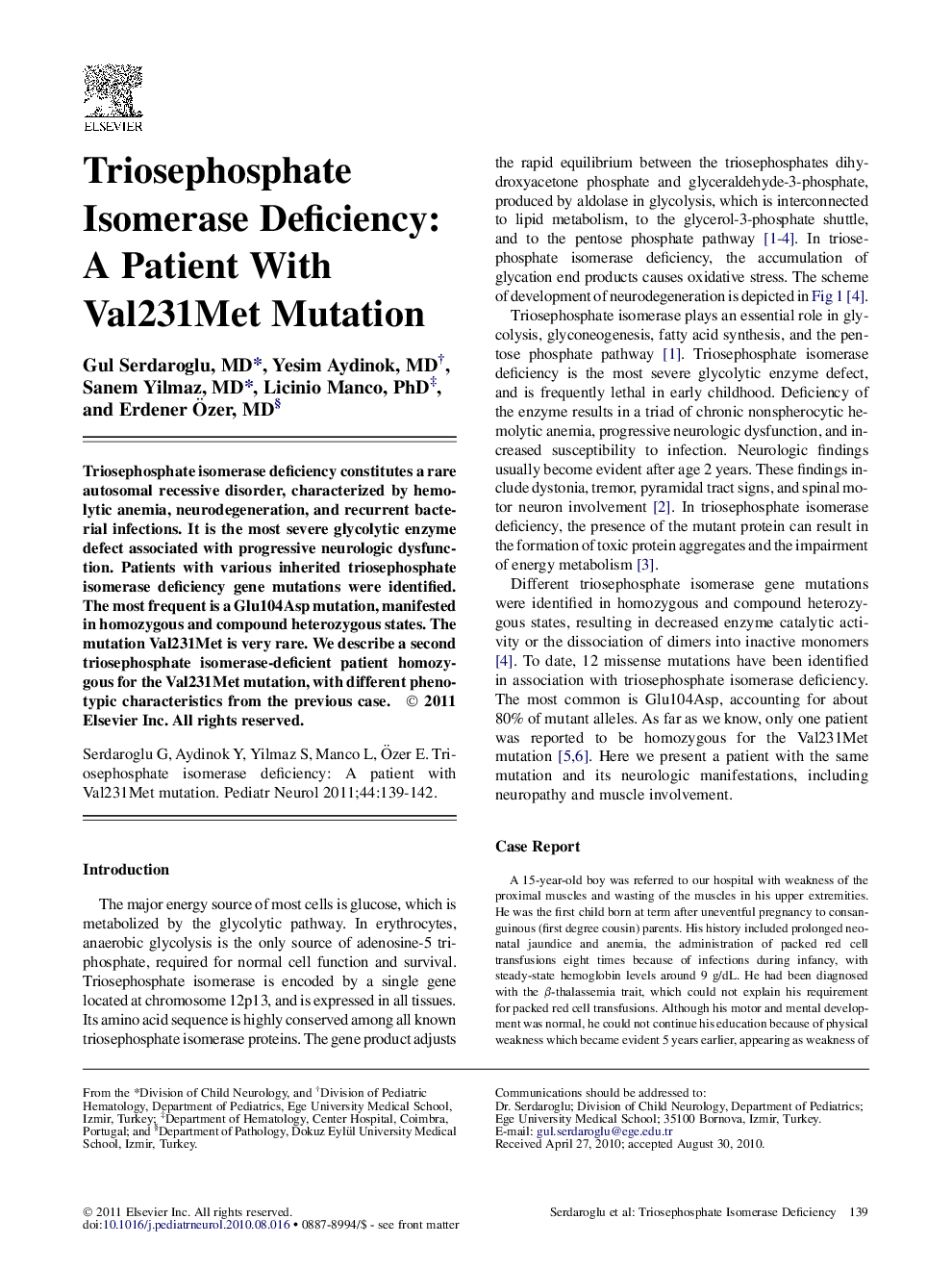| Article ID | Journal | Published Year | Pages | File Type |
|---|---|---|---|---|
| 3085788 | Pediatric Neurology | 2011 | 4 Pages |
Abstract
Triosephosphate isomerase deficiency constitutes a rare autosomal recessive disorder, characterized by hemolytic anemia, neurodegeneration, and recurrent bacterial infections. It is the most severe glycolytic enzyme defect associated with progressive neurologic dysfunction. Patients with various inherited triosephosphate isomerase deficiency gene mutations were identified. The most frequent is a Glu104Asp mutation, manifested in homozygous and compound heterozygous states. The mutation Val231Met is very rare. We describe a second triosephosphate isomerase-deficient patient homozygous for the Val231Met mutation, with different phenotypic characteristics from the previous case.
Related Topics
Life Sciences
Neuroscience
Developmental Neuroscience
Authors
Gul Serdaroglu, Yesim Aydinok, Sanem Yilmaz, Licinio Manco, Erdener Özer,
